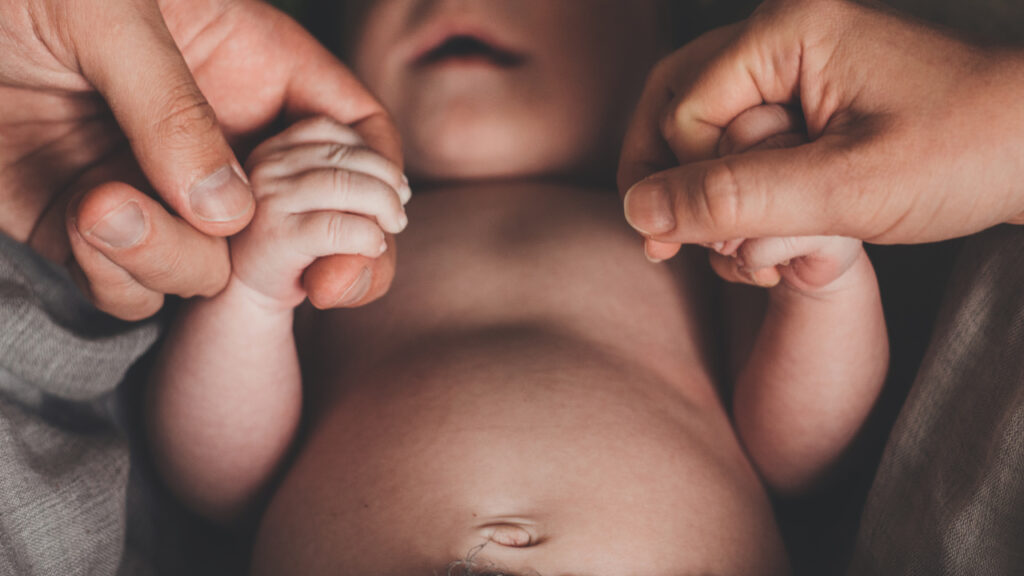
Boston Mayor Michelle Wu’s ‘Maternity Leave’ Is Just…Working—What That Says About America’s Broken System for Moms
Boston Mayor Michelle Wu made history once again—but this time, it wasn’t for a policy decision. Just two weeks after giving birth to her third child, Wu returned to work at City Hall with her newborn daughter, Mira, in tow. According to WCVB, Wu introduced her daughter to reporters in a brief press conference before getting back to business.
Michelle Wu, the first woman and person of color elected mayor of Boston, is no stranger to balancing public service and motherhood. Her two older sons, Blaise and Cass, were born while she served on the Boston City Council. But this moment was different: Wu is now the first Boston mayor to give birth while in office, and her swift return to work raises important questions about the expectations placed on working mothers.
“Business as usual” or unrealistic expectations for working moms?
While Wu’s return to work was celebrated by many, it also highlights the immense pressure working mothers face in the U.S. In an interview with NPR, Wu acknowledged the challenge of balancing a high-profile political role with newborn care, but emphasized that her situation is unique. “The job of being an elected official is a little bit different,” Wu told NPR’s Mary Louise Kelly. “You’re essentially on call, even on vacation, even in the middle of the night.”
Her remarks reflect a broader reality: Women are often expected to seamlessly juggle work and motherhood, even in the postpartum period. The optics of Wu’s swift return to office reinforce the unspoken expectation that women must “have it all” without skipping a beat.
Michelle Wu’s return highlights gaps in paid leave policies
Wu has been a vocal advocate for parental leave policies. As a city councilor, she led the charge for paid parental leave at City Hall. Yet, despite her past advocacy, Wu’s own decision not to take extended leave reflects the limitations of traditional policies for those in leadership roles.
The U.S. remains the only industrialized nation without mandated paid maternity leave. Even in progressive states like Massachusetts, access to adequate leave is far from universal. Wu acknowledged this in her NPR interview, noting, “We have come a long way since my first child was born,” while also stressing the need for continued policy expansion.
Her decision to bring her baby to work also underscores the disparities between different types of workers. While Wu has the flexibility to integrate motherhood into her job, most working mothers in the U.S. do not. Essential workers, service industry employees, and countless others lack the support to navigate postpartum life without sacrificing income or job security.
Michelle Wu’s leadership as a working mother is a double-edged sword
For many women, Wu’s choice to return to work so soon is both inspiring and concerning. On one hand, she is demonstrating that motherhood and leadership are not mutually exclusive. On the other, her situation could set an unrealistic precedent for women who don’t have the same level of autonomy in their jobs.
Wu has long championed policies to support working families. Her administration has expanded childcare access and worked toward greater workplace protections. But her rapid return to work raises an important question: Would she advise another working mother to do the same?
Wu’s remarks to NPR suggest she understands the complexities of her position. “Every single person should have the full range of options to support what their family needs, what their personal health needs, and what their own judgment is,” she said. This acknowledgment is crucial because, for many working mothers, those options simply don’t exist.
The bigger picture
As the first Boston mayor to give birth while in office, Michelle Wu is redefining what it means to be a working mother in politics. But her experience also highlights the systemic challenges that still need to be addressed. If anything, her story should reignite conversations about paid leave, workplace flexibility, and the societal expectations placed on mothers.
New York recently became the first state to mandate paid prenatal leave, recognizing the importance of time off for expectant mothers. The policy is a groundbreaking step toward addressing maternal health disparities. Wu’s situation makes it clear that postpartum support needs the same level of attention.
Ultimately, Wu’s decision to return to work so soon should not be seen as a model for all working mothers, but rather as a reminder of the urgent need for policies that allow every parent to make the best choice for their own family and health.




